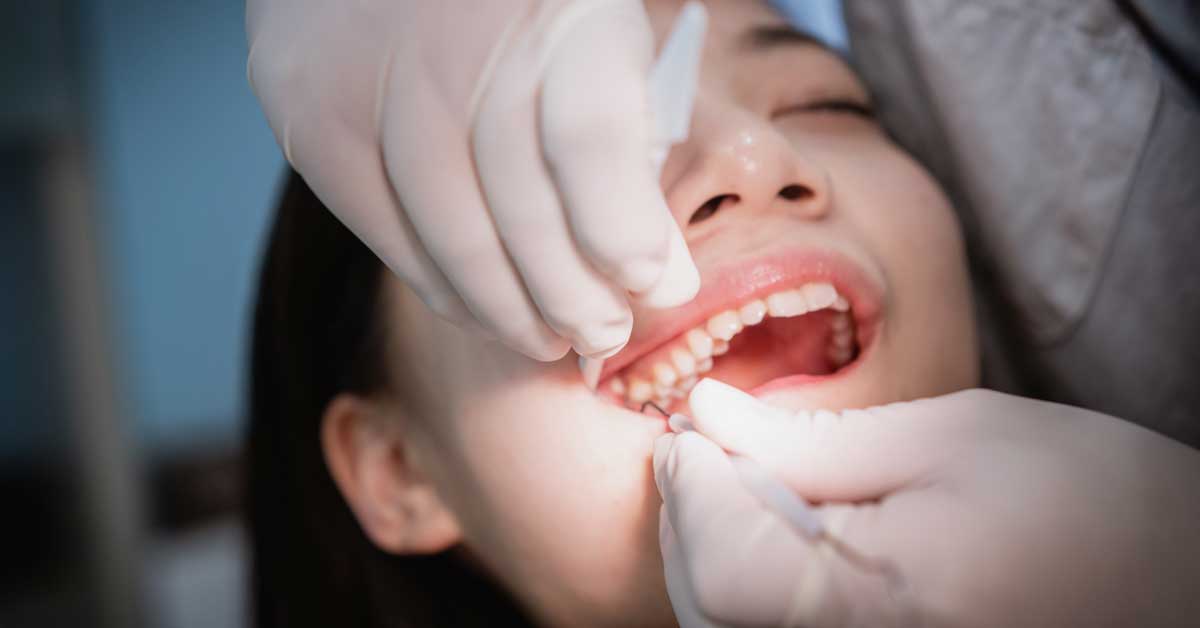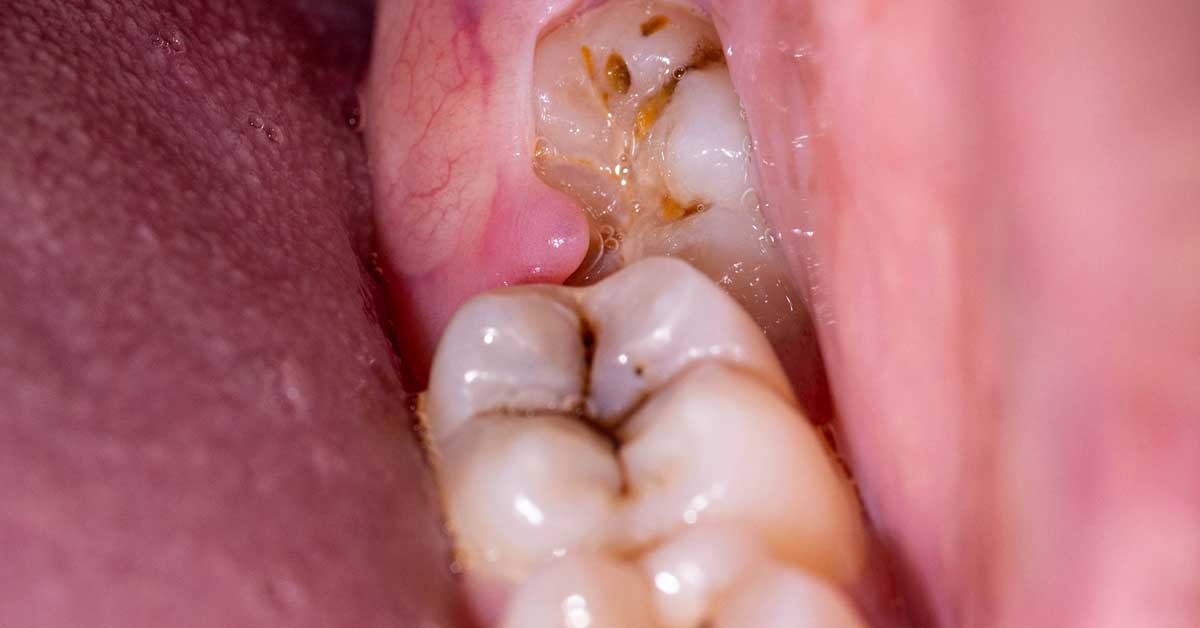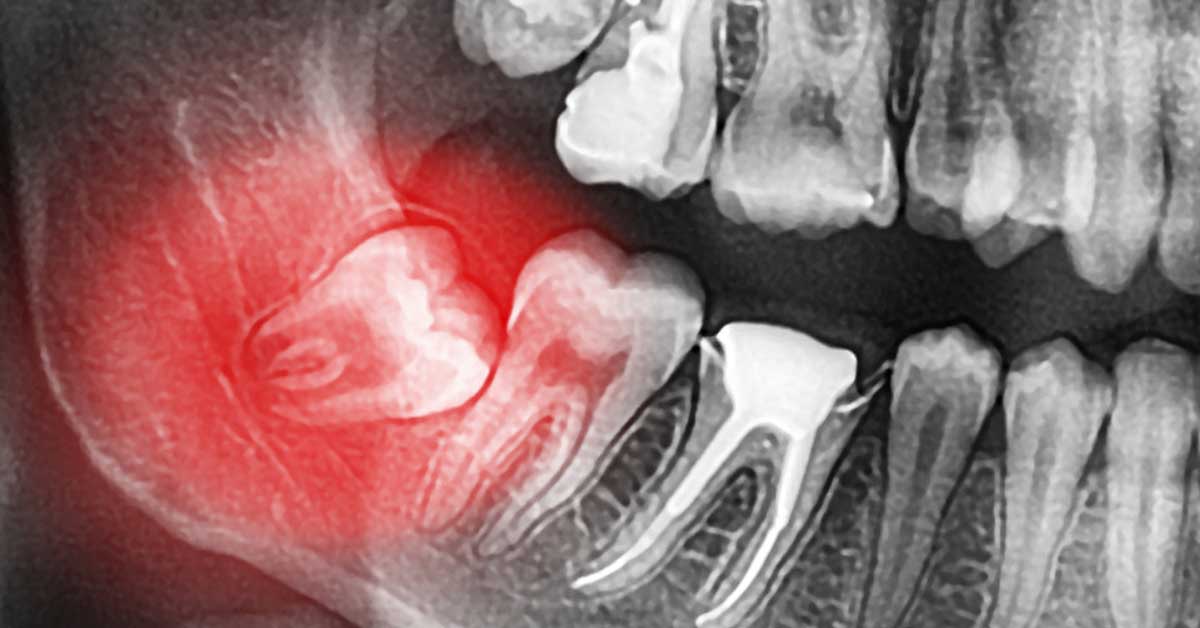Do Wisdom Teeth Make Your Breath Stink?
Have you ever wondered why your breath doesn’t always smell fresh, even when you brush and floss regularly? Could it be because of your wisdom teeth? Contrary to popular belief, wisdom teeth can indeed contribute to bad breath, also known as halitosis. But how exactly do these seemingly innocent molars affect the smell of your breath?
Wisdom teeth can contribute to bad breath due to various reasons. When wisdom teeth erupt or are impacted, they can trap food and bacteria, leading to infections that cause bad breath. Impacted wisdom teeth can also create a warm and damp environment ideal for bacterial growth, resulting in infections, cysts, decay, and bad breath.
After wisdom tooth removal, experiencing bad breath is common during the healing process due to factors like blood clots, bleeding, and changes in oral hygiene routines. It’s essential to maintain good oral hygiene, stay hydrated, follow dietary recommendations, and seek professional advice if bad breath persists after wisdom teeth removal.
If you suspect your bad breath is related to your wisdom teeth, consult your dentist for proper evaluation and treatment.
Key Highlights
-
Wisdom teeth can cause bad breath due to sinus irritation and bacterial infections.
-
Impacted wisdom teeth can trap food and bacteria, leading to infections and a foul odor.
-
Proper oral hygiene, including regular dental check-ups, is essential to maintain oral health and prevent bad breath caused by wisdom teeth.
-
Wisdom teeth removal may be necessary to improve breath freshness and overall oral health.
-
Maintaining a healthy balance of oral flora, supported by optimal saliva flow, is crucial for fresher breath.
How Wisdom Teeth Can Cause Bad Breath
Wisdom teeth can present challenges when it comes to maintaining oral hygiene, which can contribute to bad breath. The location and angle of wisdom teeth make it difficult to effectively clean them with a toothbrush and dental floss.
This can lead to plaque buildup and gum disease, both of which can contribute to an unpleasant odor in the mouth. Additionally, bacteria and food particles can easily get trapped around wisdom teeth, leading to decay, infections, and further exacerbating bad breath.
Proper oral hygiene techniques are crucial to combat the oral hygiene challenges posed by wisdom teeth and prevent mouth odor. Regular brushing and flossing, paying extra attention to the back of the mouth where wisdom teeth are located, is essential.
It is also important to schedule regular dental check-ups to monitor the health of your wisdom teeth and address any issues promptly.
| Problems Caused by Wisdom Teeth | Effects on Oral Hygiene |
|---|---|
| Plaque buildup | Increased risk of gum disease |
| Food particle entrapment | Infections and decay |
| Bacterial growth | Unpleasant mouth odor |
By addressing the challenges posed by wisdom teeth and maintaining proper oral hygiene practices, you can minimize the impact on mouth odor and overall oral health. If you have concerns or experience persistent bad breath related to your wisdom teeth, consult with your dentist for professional guidance and individualized recommendations.
The Impact of Impacted Wisdom Teeth on Oral Odor
Impacted wisdom teeth, which are trapped under the gums or bone, can have a significant impact on oral odor. Infections around impacted wisdom teeth can cause an unpleasant smell in the mouth. Common signs of infection include:
-
Pain
-
Swelling
-
Tenderness
-
Bleeding
-
Bad breath that doesn’t go away
If you experience any of these symptoms, it may indicate an infection in your wisdom teeth. Wisdom teeth infections can lead to halitosis, or persistent mouth odor.
Antibiotics may be necessary to treat the infection and eliminate the odor. However, in some cases, wisdom teeth extraction may be recommended to prevent further complications and improve breath freshness.
For more severe infections or cases where extraction is deemed necessary, dentists will usually refer patients to oral surgeons for the removal of impacted wisdom teeth. This procedure is typically performed under local anesthesia.
Removing the impacted wisdom teeth not only eliminates the source of infection but also helps restore oral health and alleviate oral odor issues caused by impacted teeth.
| Impacted Wisdom Teeth and Oral Odor | Symptoms | Treatment Options |
|---|---|---|
| The presence of impacted wisdom teeth | Bad breath that doesn’t go away | Antibiotics may be necessary to treat the infection. Wisdom teeth extraction may be recommended to prevent further complications and improve breath freshness. |
Maintaining Oral Hygiene with Wisdom Teeth
Keeping your wisdom teeth clean can be a challenge due to their location and limited accessibility. However, it’s essential to prioritize proper oral hygiene techniques to prevent bad breath and maintain optimal oral health.
By following some key practices and using specific oral hygiene products, you can effectively clean around your wisdom teeth and minimize the risk of oral problems.
1. Techniques for Cleaning
When it comes to cleaning wisdom teeth, it’s crucial to use the right techniques. Here are some tips:
-
Use dental floss: Regularly flossing around your wisdom teeth helps remove plaque and food debris that can contribute to bad breath and gingivitis. Be gentle yet thorough to avoid injuring your gums.
-
Choose interdental brushes or floss picks: These specialized tools can be helpful in reaching the tight spaces between your wisdom teeth and neighboring teeth, ensuring a more thorough clean.
-
Consider an oral irrigator: Using an oral irrigator, also known as a water flosser, can help flush out debris and bacteria from hard-to-reach areas around your wisdom teeth.
2. Proper Oral Hygiene Products
Investing in the right oral hygiene products can make cleaning your wisdom teeth more effective. Look for these options:
-
Toothbrushes for hard-to-reach areas:
Electric toothbrushes with small brush heads and rotating bristles can facilitate cleaning around your wisdom teeth.
-
Mouthwash:
Antimicrobial mouthwashes can help kill bacteria and freshen your breath. Make sure to swish for the recommended duration to maximize effectiveness.
3. Regular Dental Check-Ups
Regular dental check-ups are essential for maintaining oral health, especially when you have wisdom teeth. Your dentist can monitor the health of your wisdom teeth, identify any potential issues early on, and guide you on proper cleaning techniques specific to your oral conditions.
Additionally, professional cleanings can help remove any plaque or tartar buildup around your wisdom teeth.
Incorporating these techniques and products into your oral hygiene routine can help you effectively clean around your wisdom teeth and prevent bad breath. Remember to practice consistency and prioritize regular dental visits to ensure the best possible oral health outcomes.
Wisdom Teeth Removal for Fresher Breath
Wisdom teeth removal is often necessary to not only alleviate discomfort but also to improve breath freshness and overall oral health. If you’re experiencing symptoms of decay in your wisdom teeth, such as tooth pain and sensitivity, it may be a sign that extraction is needed.
By removing the wisdom teeth, you can significantly reduce the risk of infections, decay, and gum disease, which can contribute to bad breath. Decay in wisdom teeth can trap food particles and bacteria, leading to oral odor. The extraction procedure eliminates this source of bacterial growth, giving you a fresher breath.
Additionally, saliva plays a crucial role in maintaining oral hygiene. Impacted wisdom teeth can interfere with the normal flow of saliva, creating an environment that promotes bacterial growth and bad breath. When the wisdom teeth are removed, the balance of oral flora improves, leading to better breath quality. It restores the natural functioning and hygiene of your mouth, preventing future complications.
Consulting with a dental professional is essential to determine if wisdom teeth removal is the right course of action for you. They will carefully evaluate your situation, including the symptoms you’re experiencing, and provide personalized recommendations. Wisdom teeth extraction can help you achieve a healthier smile and fresher breath by addressing the underlying causes.
Conclusion
Wisdom teeth can have a significant impact on oral smell, often leading to halitosis or bad breath. The various factors contributing to this issue include sinus irritation, bacterial infections, and difficulties in maintaining proper oral hygiene. It is crucial to address any wisdom teeth-related problems promptly to ensure fresher breath and overall oral health.
Whether through the use of antibiotics, extraction, or diligent oral hygiene practices, taking appropriate steps can minimize the oral odor issues caused by wisdom teeth. Regular dental check-ups and open communication with your dentist play a vital role in monitoring and managing the effects of wisdom teeth on your breath.
By understanding the potential impact of wisdom teeth and adopting proactive measures, you can significantly reduce the occurrence of halitosis and maintain a healthier smile. Don’t let oral odor issues from wisdom teeth hold you back – prioritize your dental health and enjoy the benefits of fresher breath and improved confidence.





